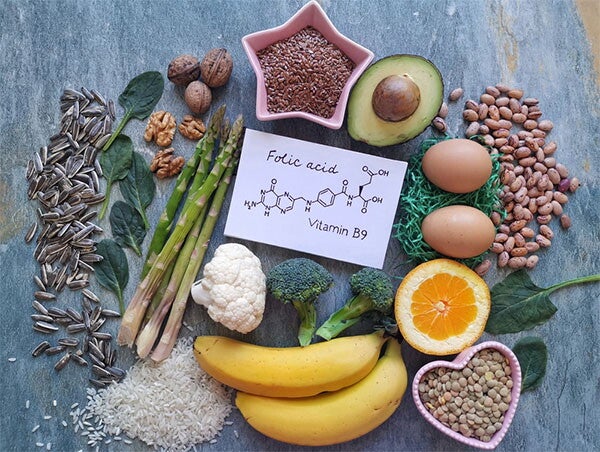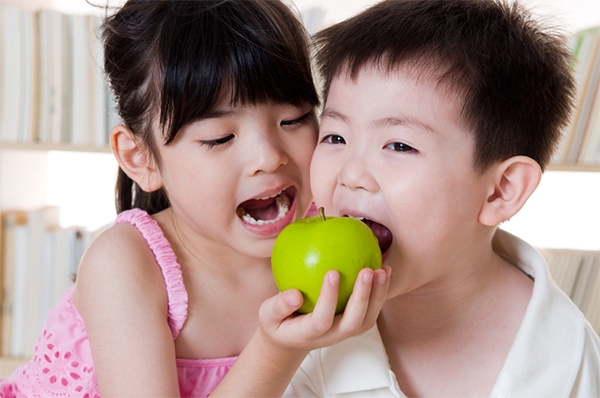
Brain Vitamins for Kids: What Matters for Thinking and Learning
Many articles on early childhood development will highlight just how fast a baby's brain grows and how crucial proper nutrients. So, you carefully track your diet while pregnant and breastfeeding. You prepare the healthiest meals packed with natural sources of well-known brain vitamins for kids.
However, that same hyperfocus on nutrition continues to matter for your child from age 3 and up. By this age, over 80% of your child's brain has already formed and starts "pruning." Harvard University's Center on the Developing Child describes the process as the brain sorting through the information it has received since birth and starts keeping what's useful.
To keep your child's brain learning and functioning at its best, it needs glucose as fuel. And turning that glucose into energy is a team effort that involves a steady and balanced supply of nutrients.
B Vitamins for Brain Development
One group of vitamins that deserves special attention for your child's brain health is the B vitamins, also known as the B-complex. They include:
- Thiamine (vitamin B1)
- Riboflavin (vitamin B2)
- Niacin (vitamin B3)
- Pantothenic acid (vitamin B5)
- Pyridoxine (vitamin B6)
- Biotin (vitamin B7)
- Folate (vitamin B9)
- Cobalamin (vitamin B12)
Here's how these vitamins work together to support a healthy brain, according to the National Institutes of Health (NIH).
1. They turn food into brain fuel.

Kids need to get their B vitamins from a variety of foods or fortified options that are made for their age.
B vitamins, such as thiamine, help the body convert food into energy that the brain can use to absorb new information.
2. They protect nerve cells.
Vitamin B12 in particular helps your child's nervous system run smoothly. It protects the myelin sheath, the layer around the nerves that allows brain signals to travel fast and accurately.
3. They support oxygen flow to the brain.
Folate and vitamin B12 work together to help produce red blood cells, which carry oxygen throughout the body.
4. They help make mood and memory chemicals.
B vitamins support the production of neurotransmitters, which help brain cells communicate. Vitamin B6 in particular helps make serotonin and dopamine, which play a big role in how kids feel and react.
What Other Vitamins Are Good for the Brain?
Aside from B vitamins, several other vitamins and micronutrients act as building blocks that support brain structure, energy use, and the ability to send and receive messages efficiently. Here are some crucial ones based on research from Nutrients and the American Academy of Pediatrics (AAP).
Iron
This mineral helps form important connections that affect how the brain functions. If a child doesn't get enough iron, they are at a higher risk of iron deficiency anemia.
Vitamin A
This micronutrient helps brain cells form, survive, and connect with each other, all of which are essential for learning and memory.
Vitamin D
With its receptor found in brain tissue, this vitamin is crucial for proper brain development and function. Not getting enough of it can affect a child's cognitive abilities.
Iodine
Iodine helps to produce thyroid hormones, which are required for brain development. According to the World Health Organization (WHO), iodine deficiency is the primary cause of preventable intellectual disability.
Zinc
This micronutrient plays a key role in how brains work and develop. A child who doesn't get enough zinc may face motor development delays, issues with attention and memory, and, as WHO highlights, stunted growth.
Choline
This nutrient is essential for the structural integrity of cell membranes and the formation of protective coverings around the nerves.
Vitamin C
LPI reports that the brain stores vitamin C in high amounts. This antioxidant also helps produce norepinephrine, a neurotransmitter that helps with mood and focus, from dopamine.
Macronutrients
AAP describes protein, fat, and carbohydrates as the building blocks of brain development. Without these macronutrients early in life, AAP adds that children may struggle in school and have more behavior challenges.
Brain Supplements for Kids: Good or Bad?
You may have seen "brain vitamins" for kids at health stores. It usually refers to nutrients or blends that claim to sharpen focus, improve memory, or speed up thinking. But there's no strong evidence that over-the-counter "brain enhancer vitamin" supplements will improve school performance or intelligence.
The truth is no pill or powder can take the place of a balanced diet. And because every child's growth and development are different, a child's nutrient needs depend on their age, health, and eating habits.
That said, supplements can be helpful in certain situations. If your child has been diagnosed with a nutrient deficiency, your pediatrician may prescribe supplements to fill any nutrient gap. In some health conditions, taking supplements may even be part of the care plan.
Just remember, it's always best to talk to a doctor to figure out the correct dose and form for your child.
The Balanced Diet for Children

The most important brain vitamins for kids can be found in food.
Good brain food is a balanced diet, and one easy way to visualize it is through Pinggang Pinoy, the healthy food plate guide developed by the Food and Nutrition Research Institute. It shows the right proportions of whole grains, vegetables, fruits, and protein-rich foods for every meal.
- Go foods like brown rice, root crops, pasta, bread, and other carbs give the energy kids need for daily activities.
- Grow: Fish, meat, poultry, eggs, beans, nuts, and dairy build and repair tissues, strengthen bones, and support brain and heart health.
- Glow: Fruits and vegetables provide vitamins, minerals, and fiber that keep the body’s systems running smoothly.
- Water: Drinking enough water supports every body function.
Staying on Top of Your Child's Nutrition
Most parents go all in on essential brain-supporting vitamins and nutrients during pregnancy and the baby stage. But keeping up with good nutrition needs to continue just as much in the preschool years as it does during pregnancy or infancy.
Your child's first five years are a time when they're learning how to focus, follow instructions, and manage emotions, all of which need a happy, well-fed brain.
And the best way to provide brain vitamins for kids is through a varied, balanced diet, with supplements used only when truly necessary. With the help of your child’s doctor, you're setting your child up for success in learning and growing so they shine their brightest!
What brain food do you serve your kids? Share your tips on the ParentTeam Moms and Dads Facebook Group!
References
Harvard Health. “Don’t Buy Into Brain Health Supplements,” August 8, 2023. Accessed August 18, 2025. https://www.health.harvard.edu/mind-and-mood/dont-buy-into-brain-health-supplements
“Cognitive Function in Depth,” Linus Pauling Institute, July 25, 2025, accessed August 18, 2025, https://lpi.oregonstate.edu/mic/health-disease/cognitive-function




























